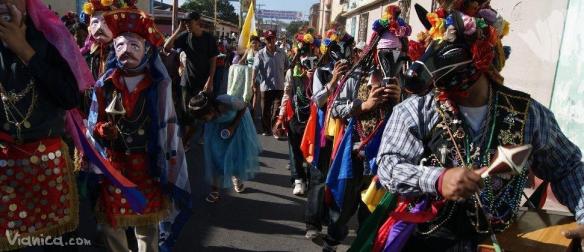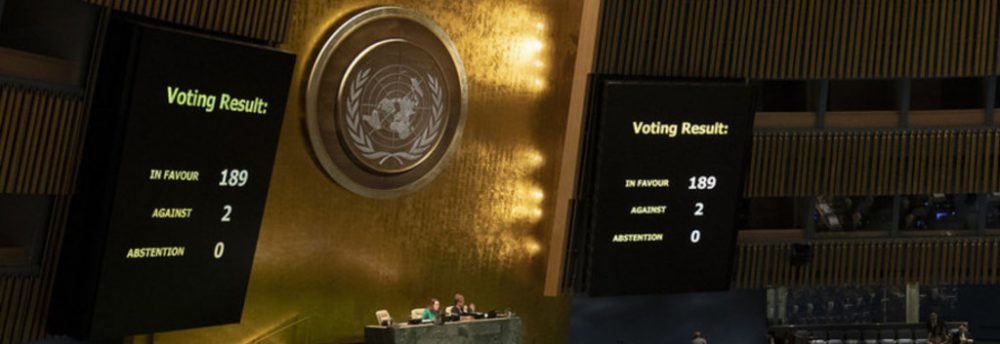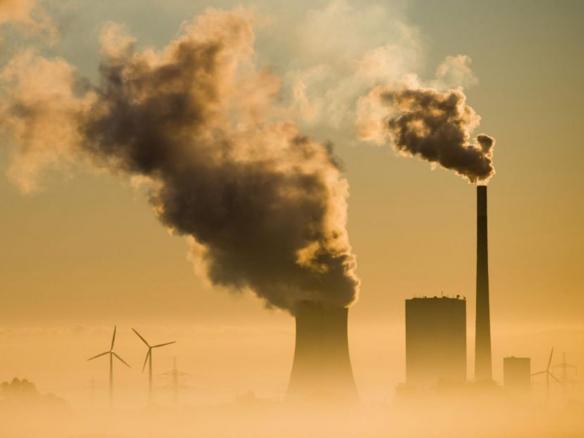Source: TeleSUR
26 November 2015
 “El Güegüense o el Macho Ratón” is one of the oldest of the handful of literary works from popular indigenous culture that have survived from Latin America’s European dominated colonial era. Essentially a piece of street theater conceived in the indigenous Nahualt language, it combines music, dance, dialogue and masquerade portraying the interaction of an indigenous merchant with a Spanish colonial official. Written in Spanish and Nahuatl, the work has been passed on for over three centuries. The music of the piece was finally recorded in the 1940s.
“El Güegüense o el Macho Ratón” is one of the oldest of the handful of literary works from popular indigenous culture that have survived from Latin America’s European dominated colonial era. Essentially a piece of street theater conceived in the indigenous Nahualt language, it combines music, dance, dialogue and masquerade portraying the interaction of an indigenous merchant with a Spanish colonial official. Written in Spanish and Nahuatl, the work has been passed on for over three centuries. The music of the piece was finally recorded in the 1940s.
Two interpretations
The dialogue allows two alternative interpretations of the storyline. From the perspective of the Spanish colonizers, the indigenous merchant is a fraud and scoundrel seeking to advance his family’s interests by fooling the Spanish official into betrothing his daughter to the merchant’s son. From the point of view of the resisting indigenous people, far from being a treacherous fraud, the merchant in fact expresses the legitimate resistance of indigenous people to arbitrary taxation by the Spanish occupiers.
Just a few years ago UNESCO wrote on its Intangible Cultural Heritage web site that “Despite its popularity, El Güegüense is in danger of declining in popularity, and possibly disappearing, due to the country’s difficult economic situation, insufficient support for performers and a diminishing interest among young people.”
The current Sandinista government has reversed that state of affairs, deliberately prioritizing the work’s propagation as an important part of recovering Nicaragua’s national cultural identity and resisting the facile, superficial homogeneity relentlessly promoted by powerful North American and European corporate media.(Photo: President Daniel Ortega)
Nicaragua’s institute of culture
 Luis Morales Alonso, Co-Director of Nicaragua’s Institute of Culture, explains, “El Güegüense is an icon of our nationality. It’s an ancient work of theater, a comedic dance, that dates from the end of the 17th Century or the early 18th century. The original versions were composed in a mixture of Spanish and Nahuatl. It’s theme is the rebellious reaction of our indigenous people against the dominion of the Spanish invasion. For us it represents a point of reference for our people’s resistance to the different kinds of invasion, colonialism and subjugation that have been imposed on us.
Luis Morales Alonso, Co-Director of Nicaragua’s Institute of Culture, explains, “El Güegüense is an icon of our nationality. It’s an ancient work of theater, a comedic dance, that dates from the end of the 17th Century or the early 18th century. The original versions were composed in a mixture of Spanish and Nahuatl. It’s theme is the rebellious reaction of our indigenous people against the dominion of the Spanish invasion. For us it represents a point of reference for our people’s resistance to the different kinds of invasion, colonialism and subjugation that have been imposed on us.
Its various characters and performance have persisted over the centuries, most currently in the city of Diriamba during the January religious feasts dedicated to the martyrdom of San Sebastian.  It is performed in the streets as a comedy ballet accompanied by music that mixes European or Spanish instruments with indigenous instruments, for example, the native whistle and drum with the violin and Spanish guitar. It includes masquerade using wooden masks, some representing Spanish characters but danced by indigenous players and others representing the work mules.
It is performed in the streets as a comedy ballet accompanied by music that mixes European or Spanish instruments with indigenous instruments, for example, the native whistle and drum with the violin and Spanish guitar. It includes masquerade using wooden masks, some representing Spanish characters but danced by indigenous players and others representing the work mules.
The story
It’s the story of a merchant selling his silks and cloths, his covers and hats, his slippers and shoes, a thousand items sold in Nicaragua. And he finds himself in a town with a Spanish governor and sees that the governor has a beautiful daughter and so the Güegüense wants to marry one of his two sons to the governor’s daughter. And the sequel plays out via dialogue in which the Güegüense – which in our country means the huehue, the wise old man – starts to mock the Spanish official, pretending to be deaf, answering at cross purposes, answering with double meaning and all that is very funny for us. It is satire. But it has a deep content in political and social terms and for that reason it represents one of the bastions of our indigenous people’s struggle.”
 Altogether, El Güegüense has 14 characters, El Güegüense himself and his two sons, the Spanish governor, his sheriff, a clerk and an assistant; the governor’s daughter and two chaperones and the four mules, called machos. As can be seen in photographs or videos of the play, the costumes are very striking, colorful and ornate. As spectacle, El Güegüense combines not just dance and music but also the ornate craft work of its masks that give the piece powerful and picturesque plastic folkloric effects.
Altogether, El Güegüense has 14 characters, El Güegüense himself and his two sons, the Spanish governor, his sheriff, a clerk and an assistant; the governor’s daughter and two chaperones and the four mules, called machos. As can be seen in photographs or videos of the play, the costumes are very striking, colorful and ornate. As spectacle, El Güegüense combines not just dance and music but also the ornate craft work of its masks that give the piece powerful and picturesque plastic folkloric effects.
UNESCO recognizes El Güegüense
But all that spectacle is reinforced by a very beguiling plot with great resonance in Latin America and the Caribbean. It was this unique combination of spectacle with social and political significance that lead UNESCO in 2005 to name El Güegüense as a work belonging to the Intangible Cultural Heritage of Humanity.
Luis Morales notes, “We feel very proud that 10 years ago the UN declared this foundational work of Nicaraguan literature, the comedic ballet, El Güegüense part of Intangible Cultural Patrimony of Humanity. That in itself constitutes a launch pad so that people around the world can become familiar with this cultural expression of our people, which is so rich culturally, combining literature, dance, music, theater, the skilled plastic art of the craft work, all those beautiful masks, the costumes, the choreography.
Representing the struggles of the Latin American people
“So it really makes us proud that UNESCO has given Nicaragua’s El Güegüense the status of being part of Humanity’s Patrimony. And we know that his work of ours has a similar importance to other foundational cultural works of peoples across North, Central and South America who also represent the struggle of our populations, of our indigenous peoples who stood up to Spanish domination and European domination in the centuries prior to the 19th Century.
And even still in the 20th Century we confronted new forms of domination and colonization and this has to be recognized in all of Latin America because this represents Latin America. The joy, the vivacity, the heroism of our peoples is all there in El Güegüense and we think it really does represent the feeling of the peoples of Latin America and the Caribbean.”
A tradition of people’s street theatre

That feeling itself is a fundamental impulse towards freedom and independence for which works like El Güegüense are absolutely indispensable reference points as part of the region’s cultural inheritance. Luis Morales Alonso points out that the characters of El Güegüense derive from “an ancient tradition of theater that commands our attention, a tradition of people’s street theater which can be found repeated among all the peoples of our America. We have incredible expressions of it in Bolivia, Peru, in Venezuela, Ecuador, Panama, in Guatemala, each one with their masks, their ornate craft works, the beautiful, colorful costumes, and all that typifies our peoples.”
Nicaragua’s cultural heritage under President Ortega
 Under President Daniel Ortega, Nicaragua’s Sandinista government has made a priority of teaching Nicaragua’s cultural heritage. In Managua, in the former National Assembly, now the Palace of Culture, the Institute of Culture has a very attractive permanent exhibition dedicated to El Güegüense containing related works of art, in particular works by the distinguished Nicaraguan artist Carlos Montenegro. The Institute of Culture works very closely with the Ministry of Education and sees that work as essential to reinforce the role of El Güegüense as part of Nicaragua’s cultural identity.
Under President Daniel Ortega, Nicaragua’s Sandinista government has made a priority of teaching Nicaragua’s cultural heritage. In Managua, in the former National Assembly, now the Palace of Culture, the Institute of Culture has a very attractive permanent exhibition dedicated to El Güegüense containing related works of art, in particular works by the distinguished Nicaraguan artist Carlos Montenegro. The Institute of Culture works very closely with the Ministry of Education and sees that work as essential to reinforce the role of El Güegüense as part of Nicaragua’s cultural identity.
“We have a great many activities with our schools and in this way, our new generations, our young people in their centers of study get to know this work, study it and perform it. Our government of national unity and reconciliation gives tremendous importance to this through the Institute of Culture and the Ministry of Education to promote familiarity and enjoyment of this dance comedy El Güegüense…
“Because it’s a work in which a local native makes fun of foreign authority, in this case the authority of Spain and through its theater manages to embody the aspirations of our peoples to a better life. That is seen in the theme of the marriage to the Governor’s daughter, but also in the mockery of the Governor himself. It is a very attractive work best expressed in the verses where El Güegüense utters satirical contradictions in his own burlesque way. That’s attractive to us because we Latin Americans are very joyful. Despite all the difficulties, for example the natural disasters we suffer as a result of not taking care of our Mother Earth, we face things with stoicism, with heroism, with joyfulness, with music and with dance.”
Source: El Güegüense – An Indigenous Satire of Empire



 Climate change could push more than 100 million people into extreme poverty by 2030 by disrupting agriculture and fueling the spread of malaria and other diseases, the World Bank has said in a report.
Climate change could push more than 100 million people into extreme poverty by 2030 by disrupting agriculture and fueling the spread of malaria and other diseases, the World Bank has said in a report.
 When former President Hugo Chavez was elected in 1998, 21 percent of Venezuelans lived in extreme poverty. Since then, under Chavez’s same PSUV socialist party government, a variety of government “missions,” or initiatives, have bolstered living conditions for millions.
When former President Hugo Chavez was elected in 1998, 21 percent of Venezuelans lived in extreme poverty. Since then, under Chavez’s same PSUV socialist party government, a variety of government “missions,” or initiatives, have bolstered living conditions for millions.






